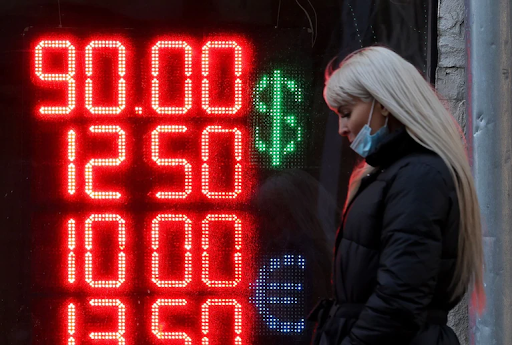German Chancellor Signaled Law Makers on the Oppositions against Russian Energy
German Chancellor Olaf Scholz believed it is in no one’s interest to sabotage economics by sanctioning Russia. Photo: Kay Nietfeld/Associated Press
On Wednesday, March 23, German Chancellor Olaf Scholz addressed lawmakers against banning Russian energy, believing it will lead to substantial job loss in Germany. The statement is the latest signal on Germany’s stance on the international economic hotspot. Despite its closer stance with NATO on security issues, Germany, the European Union's main actor, can not sacrifice the domestic economy and energy resources to join the global sanction on Russia.
Scholz's announcement, despite Poland and France’s protest, became one of the reasons Rubles prices climbed back to only 30% short from its pre-war value. NATO and Ukraine may be able to incorporate current sanctions and security support into an effective method to deter Russian aggression. In the meantime, the energy issue is a loophole that keeps the Russian economy alive and the opposition against boycotting proves it.
Ever since the Russo-Ukrainian war broke out, the Russian gas and global economics surrounding energy have been a sensitive topic. While Russian energy has been its biggest chip on the table, the international stage and collective securities have been looking for ways to implement effective economic sanctions to deter the aggressor’s unchecked power. After the international stage banned Russia from SWIFT (The Society for Worldwide Interbank Financial Telecommunication), Russian enterprises and Rubles took a huge hit. When the EU alliance initiated sanctions, the interest rate doubled and Rubles prices crashed.
Germany, which has been relying on Russian gas, was reluctant to compile on security collective defense against Russia when the Russo-Ukrainian war broke out. The domestic stability is the highest priority for the longest time for Germany. With economic sanctions, the Nord Stream 2 pipeline running between Russia and Germany was in danger. The pipeline, for example, was once again the most controversial project under the spotlight.
For Western countries, the pipeline issue is the biggest bargaining chip in Western efforts to prevent Russia's further aggression. For Russia, the high demand is the lifeline to support the Russian economy that is already in shambles. Germany’s signaling this past Wednesday proves the latter to be true.
Germany is the most prominent voice in opposing boycotting Russian energy for a reason. Germany relied on Russia for more than half of its natural gas and coal and 30 percent of its oil. Countries like the US can release the oil reserve to relieve the demand for energy, but Germany needs the stable supply from Russia to prevent job loss from skyrocketing along with the gasoline prices. Germany is not alone, since countries like Hungary and Bulgaria are also hugely dependent on Russian Energy.
As for now, Robert Habeck, Germany’s vice chancellor and economics minister, who has announced the construction of alternative energy projects, is working on other ways out. In the meantime, he was clear in his social media post last week that it is in no one’s interest to put the German economy at risk before the alternative energy proves to have enough supply. Before then, EU countries may simply have to rely on Russian energy for months to come.
Displaying the exchange rate in Moscow on February 28th. Photo: Andrey Rudakov/Bloomberg News


